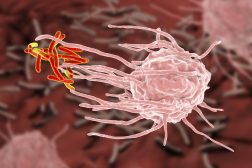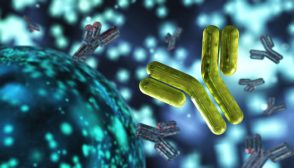Definition
noun
(immunology) A major blood group antigen that defines blood type O; the essential precursor of major ABO blood group antigens, and is made up of β-D-galactose molecules, β-D-N-acetylglucosamine, and 2-linked, α-L-fucose
(microbiology) Any of the flagellar antigens of motile bacteria
Supplement
Immunology: All humans have H antigen on RBCs. However, some people, particularly those who are A blood type, have another blood group antigen, called A antigen, since they have the A allele that encodes for the enzyme glycosyltransferase that catalyzes the binding of N-acetylgalactosamine to the H antigen. Those who are B blood type have a different blood group antigen, called B antigen. They have the B allele that encodes for an enzyme that catalyzes the joining of galactose to H antigen. As for those with blood type AB, both A and B alleles are present and therefore encodes for the enzymes that catalyze the formation of both A and B antigens on RBCs. In contrast, those with blood type O lack them and the enzymes, and therefore would have no other but H antigen on their RBCs.
Compare:
- A antigen
- B antigen
See also:



